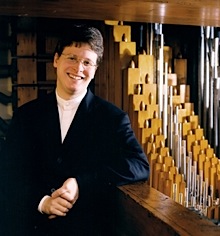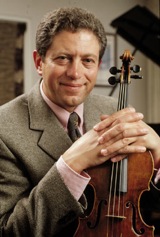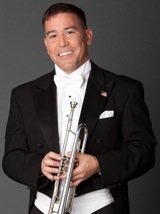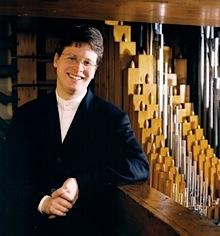Marketing departments being what they are, the advance ads might have convinced you that the main event on this week’s San Francisco Symphony program was Tchaikovsky’s Symphony No. 4 in F Minor, Op. 36. To be sure, Michael Tilson Thomas and the orchestra performed the work as planned, conferring considerable eloquence and brio on Tchaikovsky’s monumental masterpiece. But the program’s greatest rewards came in a trio of American works: Aaron Copland’s Organ Symphony and Quiet City, and Lou Harrison’s A Parade. It may be some time before audiences hear any of these works played in the Bay Area again — or hear them played this well.

At Wednesday evening’s opening performance in Davies Symphony Hall, the digital recorders were up and running for Copland’s Organ Symphony, with Paul Jacobs as soloist (the recording will be released at a later date, along with Ives’ “Concord” Symphony, on the Symphony’s SFS Media label). Committing the composer’s 1924 score to disc is a splendid idea — written for Copland’s teacher, Nadia Boulanger, who gave its first performance, and to whom it is dedicated, this youthful work seldom makes it onto the programs of today’s major orchestras.
It’s an unusual score, one that doesn’t fit neatly into Copland’s canon; the listener doesn’t hear the brash Americana of Rodeo or Appalachian Spring here. Yet, this is an essential, even lovable, work by the great American composer — an admirable example of Copland’s neoclassical period, and an intriguing look forward to the stylistic concerns he embraced as his career evolved.
The first movement, a gentle Prelude, inches forward on a slender melody for flute and viola, urged along by the organ and strings. The central Scherzo, introduced by burbling woodwinds and blasts of brass, envelops the audience in boisterous rhythms and fleet orchestrations. The finale, with its beguiling set of variations, brings the soloist most emphatically to the fore.

Tilson Thomas, who featured the work on the Symphony’s European tour earlier this month, returned to it at Davies with vigor and affection. Jacobs gave a deftly delineated account of the organ part; the finale in particular showed a deep and mutual understanding between conductor and soloist. There were superb contributions throughout the orchestra, including those from concertmaster Alexander Barantschik, principal violist Jonathan Vinocour, and harpist Douglas Rioth.
In contrast, Copland’s Quiet City offered somber sonorities and sleek performances by the Symphony’s own principal trumpet, Mark Inouye, and English horn, Russ deLuna. Copland composed the 1939 score as incidental music for a play by author Irwin Shaw; the play closed in previews, but the music endures as a kind of ode to the New York of the composer’s youth. With Tilson Thomas eliciting a backdrop of beautifully colored string sound, Inouye and deLuna played the solo parts with distinction.
What a pleasure it was to hear Harrison’s A Parade as the evening’s curtain-raiser. Commissioned by the San Francisco Symphony to open Tilson Thomas’s first concerts as music director, the 1995 fanfare is a quintessential offering from one of the West Coast’s most significant 20th century composers. Sweetly melodic and slightly overstuffed, suffused with bells and chimes, high spirits, and Asian-isms, the work manages to be both whimsical and grandly epic — all in just under 10 minutes. The orchestra gave it a singing performance.

And then there was Tchaikovsky’s Fourth Symphony. After intermission, Tilson Thomas delivered as promised. The orchestra has played the Fourth Symphony numerous times throughout the conductor’s tenure, and featured it in the Symphony’s “Keeping Score” series, but this was a remarkably fresh-sounding account; Tilson Thomas elicited lean sonorities — shapely strings, assertive brass, and crisp woodwinds — and maintained bracing tempos. The Andantino was especially fine, with principal oboist William Bennett dispatching his solo part with plangent tone.

